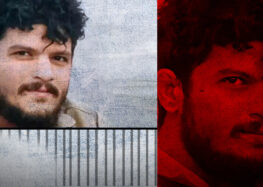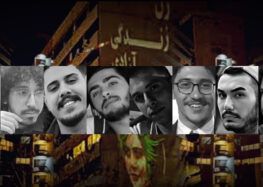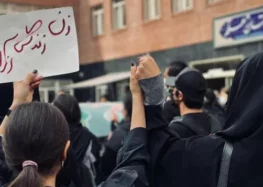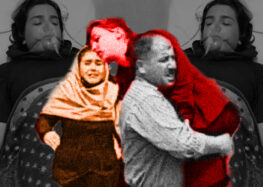Students Assaulted, Arrested in State Crackdown on University Protests
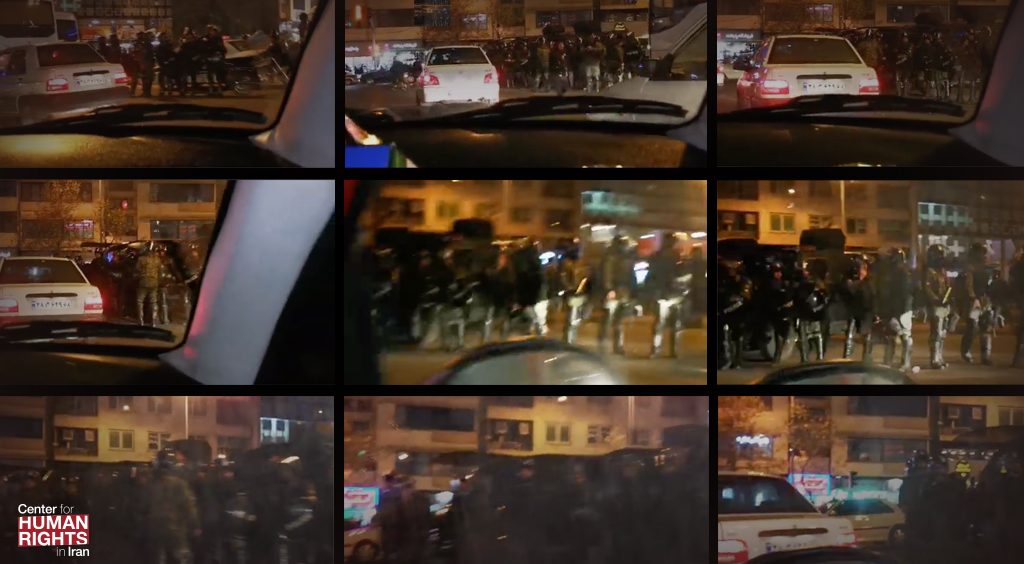 Eyewitnesses Report Heavy Paramilitary Presence, Internet and Phone Disruptions
Eyewitnesses Report Heavy Paramilitary Presence, Internet and Phone Disruptions
Protesters were physically attacked and arrested at universities in Tehran and other Iranian cities on January 14, 2019, the fourth consecutive day of protests that had erupted in the country after the Islamic Revolutionary Guard Corps (IRGC) admitted to accidentally downing a Ukrainian passenger plane.
“The front entrance of the University of Tehran was full of security agents,” one eyewitness who requested anonymity for security reasons told the Center for Human Rights in Iran (CHRI). “They closed off the area between the 16th of Azar and 12th of Farvardin streets and didn’t allow anyone to cross for some time. But even when they opened up the road it was hard to move because there were agents everywhere.”
Students at the University of Tehran had called for a gathering at Pardis Center located in front of the university’s medical college to mourn the passengers who died on Flight PS752 during the early morning hours of January 8 after it was shot down by the IRGC.
“The Basijis were wearing khaki uniforms without head caps but some of them had completely covered their faces with masks that only had eye and mouth openings,” added the source. “They had stationed a lot of Basijis, including youngsters who seemed to be 14-15-years-old, at every street crossing and the university’s entrances and exits.”
The Basij paramilitary volunteer force operates under the direction of the IRGC.
The source continued: “There were also some armed agents in Basiji uniforms on motorcycles maneuvering in the adjacent streets. They had brought vans that looked like taxis from the outside that had cages inside. They were also using ambulances from the Oil Ministry and the State Welfare Organization to transport the anti-riot forces and Basijis.”
“There were minibusses, too, which brought plainclothes agents who dressed like civilians,” added the source. “They would walk the streets and start discussions with people about the downing of the passenger plane being a terrible act and when people agreed, they would arrest them.”
Videos shared on social media networks showed protesters chanting: “the blood in our veins is food for our [supreme] leader,” “no to referendum, no to reform; [yes to] strikes and revolution,” “death to tyrants; whether they are the shah or the [supreme] leader,” “we will die to take back Iran,” and “death to Velayat-e Faghih” [rule of the Islamic jurist].
Trapped Students Beaten and Arrested After State Forces Close University Gates
A student activist who requested anonymity for security purposes told CHRI that a water cannon was stationed in front of Amir Kabir University of Technology in Tehran and its eastern sidewalk was blocked off. At one point, the university’s gates were closed and plainclothes agents beat protesters who were trapped inside:
“After they closed the gates, plainclothes agents began beating the students. We were trapped there for two hours. The internet had been disrupted and the phone lines weren’t working for some time. The students were chanting, ‘you are our Daesh [terrorist group known as ISIS],’ ‘mullahs should get lost,’ ‘Khamenei shame on you; let go of the country.’”
Access to the global internet was also disrupted nationwide in Iran for 10 minutes that day on January 14, according to the internet monitoring organization Netblocks.
This round of protests in Iran had started at Amir Kabir University on January 11 after activists called for a gathering to honor the memory of the 176 people—mostly Iranians and Iranian Canadians—who were killed after the IRGC accidentally shot down flight PS752.
Students were also arrested at Shahid Beheshti University in Tehran.
“The Basijis based at Shahid Beheshti University were carrying posters of [assassinated IRGC Qods Force commander] Qassem Soleimani as well as posters of some of the victims of the plane crash, and when the students started chanting: ‘if you’re really mournful, why did you sit and wait three days?’ a clash broke out,” a student activist told CHRI.
“At first the clash was between the students and the Basijis but then other older-looking forces were brought in from outside to our university to suppress the students,” added the activist (Iran’s Basij militia is primarily composed of young men).
Protest gatherings also occurred at the Alzahra University in Tehran, the University of Arak in Markazi Province, the Fine Arts University in Isfahan, central Iran, and the University of Mohaghegh Ardabili in Ardabil Province.
At the University of Isfahan, in central Iran, eight student activists received threatening calls from the university’s security office demanding that the protests be canceled.
University students who were arrested on January 14 include Mohammad Amin Hosseini, the former chairman of the student council at Noshirvani University in Babol, Mazandaran Province; Majid Mehrpouri a student at Kharazmi University in Tehran; and Mohammad Esmaili at the University of Tehran.
Meanwhile, Salah Gharibi, Nabi Tardast, and Ashkan Valizadeh, three students who had been detained in connection with protests at Razi University in Kermanshah, western Iran, were released on bail.
Read this article in Persian.


